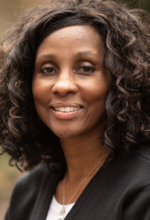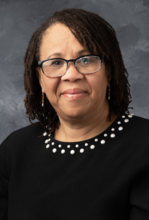Editor's note: This is an archived article. The content, links, and information may have changed since the publication date.
The University of Iowa has restructured its Division of Diversity, Equity, and Inclusion to comply with directives from the Iowa Board of Regents and recent state legislation.
As President Barbara Wilson shared with the board in April, the newly named Division of Access, Opportunity, and Diversity (DAOD) will ensure the university’s compliance with state and federal law and diversity-related accreditation criteria. The division also will help students, faculty, and staff build cultural competency skills needed to understand and respect the values, attitudes, norms, and beliefs that differ across cultures.
Some of the same programs will be administered by the new division, but its internal units have been realigned to ensure efficiency and better support campus.
New units and new leaders
To improve collaboration and information sharing, the division is combining two units and reorganizing another. After a review, the university’s DEI Forward Task Force recommended the Office of Institutional Equity, which was led by three directors, be restructured under a single senior director who must hold a law degree.

Tiffini Stevenson Earl, previously the director of equity investigations and ADA compliance, will lead the new Office of Civil Rights Compliance (OCRC). Earl has three degrees from Iowa including a bachelor’s in political science, master’s in urban and regional planning, and law degree. She has been conducting complaint investigations and designing and delivering educational programs since 2005.
“Tiffini brings a unique skill set to this position,” stated Liz Tovar, executive officer and associate vice president of the Division of Access, Opportunity, and Diversity. “She will maintain our institution's compliance with the law while uniting campus on prevention education and assistance programs.”
The DEI Forward Task Force report also recommended merging the Center for Inclusive Academic Excellence (CIAE) and the Inclusive Education and Strategic Initiatives (IESI) unit into a single operation now named the Office of Access and Support (OAS).
OAS, which will be led by Cassandra Gordon-Fletcher, will continue to administer federally funded programs like TRIO, which helps students overcome economic, social, academic, and cultural barriers to higher education, as well as university specific programs like Iowa Edge, a mentorship program for students from under-resourced high schools, first generation college students, and transfer students.

OAS also will develop and provide training programs that align federal compliance and accreditation criteria; promote respect, critical listening, and free expression; and are available to all students, faculty, and staff.
Gordon-Fletcher joined the university in 2023 as the director of IESI, having previously served as an education services specialist with United States Army and as an adjunct faculty member at North Park University and Columbia College. She holds a Doctor of Education in Higher Education Leadership from Argosy University in Schaumburg, Illinois.
“The broad range of experience in Cassandra’s career makes her a perfect fit for developing our new path forward,” said Tovar. “This new office will serve campus units in maintaining their accreditation standards as well as have an increased emphasis on providing individuals with the skills necessary to serve as culturally and globally competent leaders who can thrive an increasingly diverse society and workforce.”
Central coordination
Maintaining the Division of Access, Opportunity, and Diversity as a central unit that coordinates services across campus mirrors the university’s hub-and-spoke model within human resources, Information Technology Services, and Finance and Operations. This structure will help coordinate services across campus and limit duplication.
“The hub-and-spoke model has been successful at the university for many years, and it makes sense for this office to centralize in the same way,” says Tovar. “We will provide a core structure and services to maintain consistency across campus. We will then work with each group to customize these services to best serve their students, faculty, and staff.”